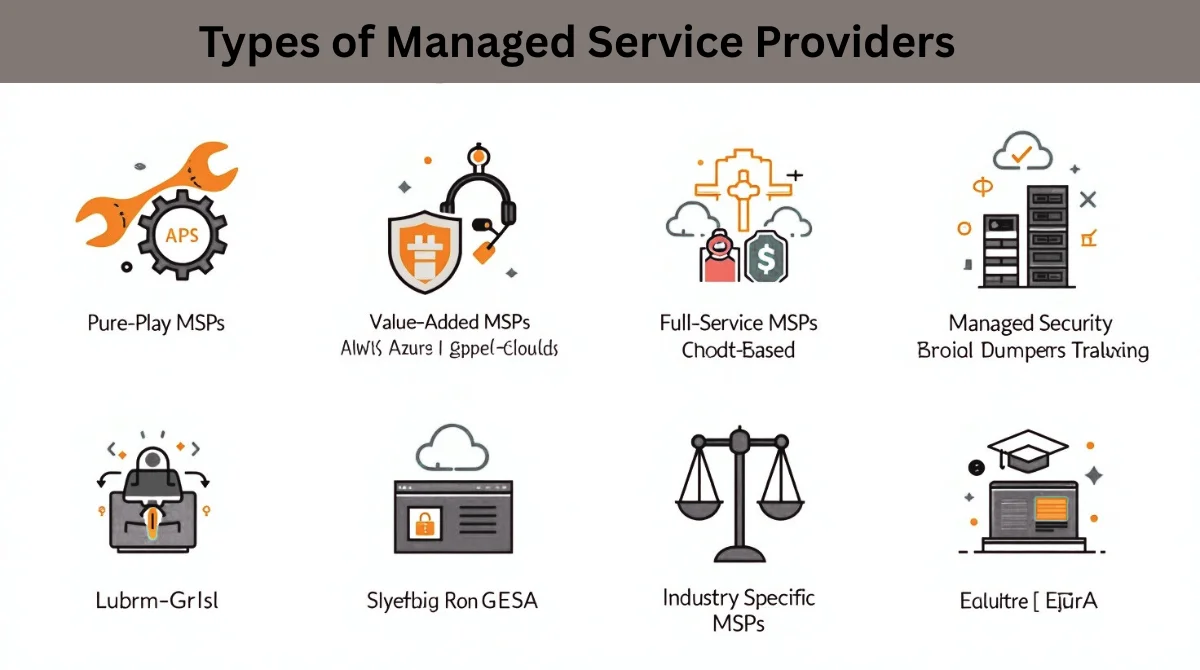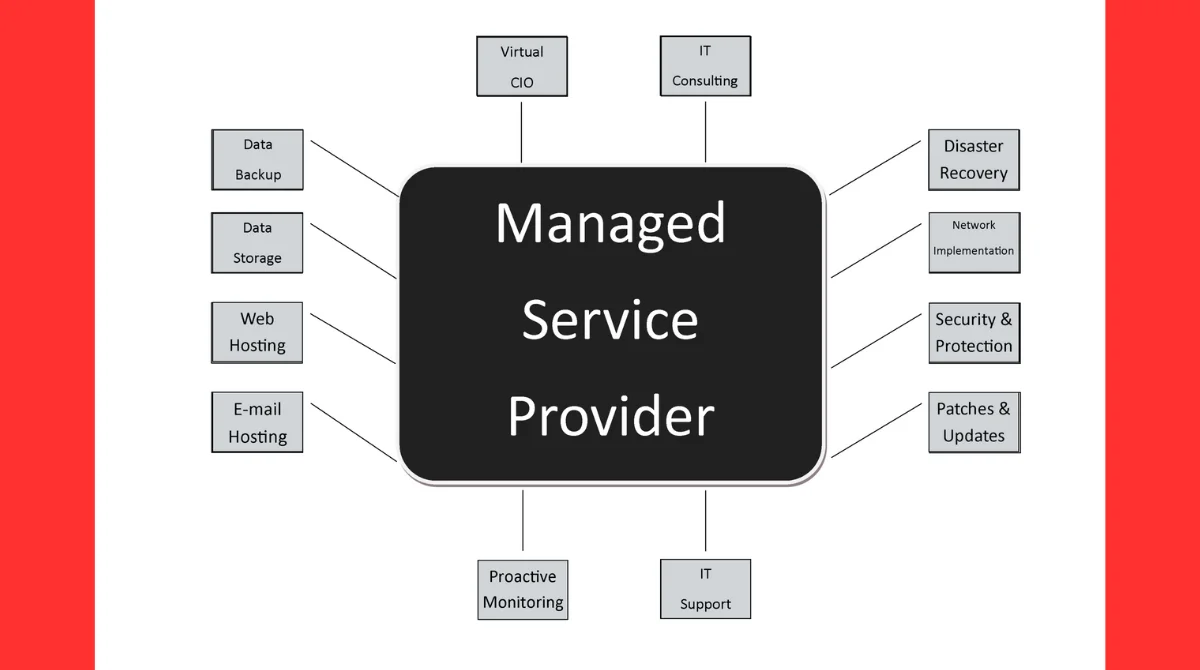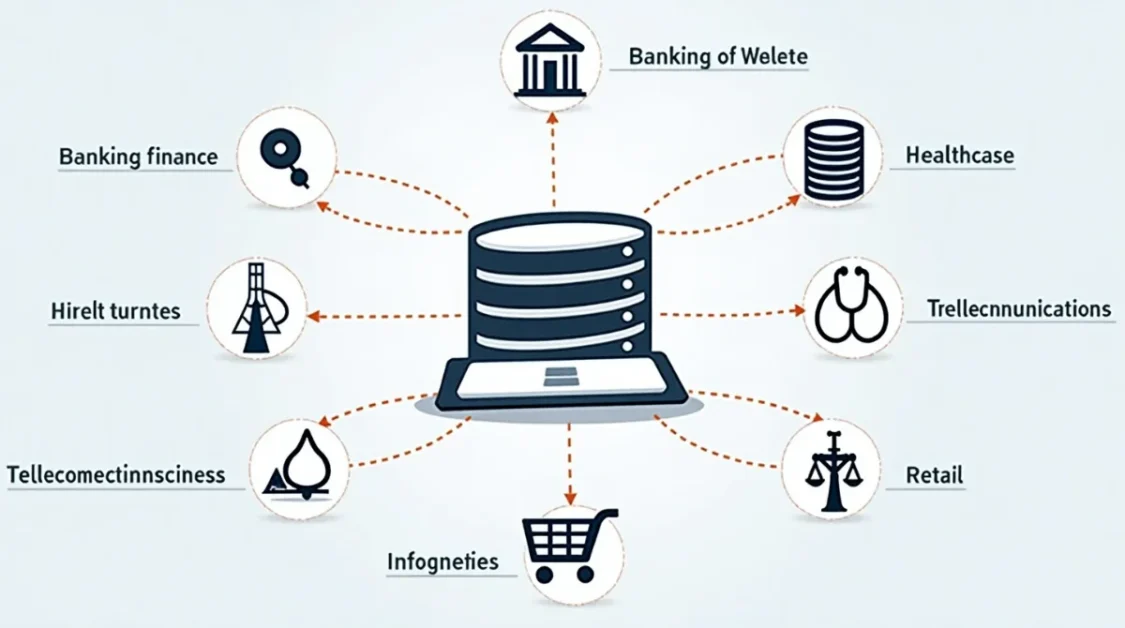In today’s fast-paced business world, companies often need help managing their technology and operations. This is where a Managed Service Provider, or MSP, comes into play. An MSP is a company that businesses hire to handle certain tasks, especially related to IT and technology. Instead of managing everything in-house, businesses can rely on MSPs to take care of specific services, allowing them to focus on their core activities.
Understanding the Role of an MSP
An MSP offers a range of services to businesses, primarily focusing on IT infrastructure and end-user systems. They monitor, manage, and support a company’s technology needs, ensuring everything runs smoothly. This includes tasks like maintaining servers, ensuring network security, and providing technical support to employees. By outsourcing these responsibilities, businesses can benefit from expert services without the need to maintain a full in-house IT team.
Services Offered by MSPs
MSPs provide various services tailored to meet the unique needs of businesses. These services include:
- System Patching: Ensuring all software and systems are updated with the latest patches to maintain security and performance.
- Monitoring and Alerting: Using advanced software to monitor IT systems in real-time, detecting and addressing issues proactively.
- Technical Support: Offering round-the-clock technical support to handle routine IT issues and ensure smooth operation of hardware and software.
- Backup and Disaster Recovery: Implementing data backup solutions
- Cybersecurity: Providing robust cybersecurity measures, including antivirus, anti-malware, and network security, to protect against cyber threats.
- Cloud Services Management: Managing cloud services, assisting businesses in migrating to the cloud, and ensuring secure and efficient cloud operations.
- IT Consulting: Offering IT consulting services to help businesses plan and implement IT strategies aligned with their goals.
Benefits
Hiring a Managed Service Provider comes with many valuable benefits that can help businesses of all sizes grow and operate more smoothly. Whether it’s a small company that can’t afford an in-house IT team or a large organization looking to save time and money, MSPs offer smart solutions that make a big difference. Here are the key benefits:
1. Lower and Predictable Costs
Running a full in-house IT department can be expensive. You need to hire skilled staff, buy equipment, and keep everything updated. MSPs help cut down those costs. Most of them work on a monthly subscription basis, so you know exactly how much you’re spending each month. No surprise bills or big repairs to worry about. This makes budgeting easier and keeps IT costs under control.
2. 24/7 Monitoring and Quick Support
Technology can fail at any time — day or night. One of the best things about MSPs is that they keep an eye on your systems around the clock. They monitor your computers, servers, and networks 24/7. If something goes wrong, they usually fix it before you even notice there’s a problem. And if you do need help, their support teams are just a call or email away, ready to assist any time.
3. Proactive Problem Solving
Instead of waiting for problems to happen, MSPs work to prevent them. They regularly check your systems for signs of trouble and fix small issues before they turn into big problems. This approach saves time, reduces downtime, and helps avoid disruptions that can slow down your business.
4. Access to IT Experts
Hiring full-time tech experts can be expensive, and one person might not have the skills to handle everything. With an MSP, you get access to a team of skilled professionals with knowledge in all areas of IT — networking, security, cloud computing, hardware, and more. It’s like having your own team of experts without the high cost of building one in-house.
5. Better Security
Cyberattacks are a growing threat for all types of businesses. MSPs offer strong security services that protect your data and systems. They install and update antivirus software, set up firewalls, perform security checks, and make sure your network is safe from hackers. If you’re in an industry with strict rules (like healthcare or finance), MSPs can also help you stay compliant with those regulations.
6. Data Backup and Recovery
Losing your business data can be a disaster — whether it’s from a cyberattack, system crash, or human error. MSPs set up regular backups to make sure your important files are always safe. If something goes wrong, they help you recover lost data quickly, so you don’t lose time or money.
7. Focus on Core Business
When you don’t have to worry about managing technology or solving IT issues, you can focus on what matters most — running your business. Whether it’s sales, marketing, customer service, or growth planning, an MSP takes care of your IT in the background, giving you more time and peace of mind.
8. Scalability and Flexibility
As your business grows, your IT needs will change. You may need more storage, better software, or stronger security. MSPs make it easy to scale your services up or down based on your current needs. Whether you’re opening a new office or expanding your team, they can adjust their support quickly to match your pace.
9. Stay Updated with the Latest Technology
Technology is always changing, and it can be hard to keep up. MSPs make sure your systems use the latest tools, updates, and security patches. They can also recommend new technology that makes your work easier or more efficient. This helps your business stay competitive and modern.
10. Compliance and Risk Management
Many industries have rules about how data must be handled. Failing to follow those rules can result in fines or legal trouble. MSPs help you meet these requirements by setting up the right security, keeping records, and helping with audits. They also reduce the risk of cyberattacks or system failures by managing everything the right way.
Types of Managed Service Providers

Not all MSPs are the same. They can differ based on the services they offer, the industries they serve, and the level of support they provide. Understanding the types of MSPs can help businesses choose the right one for their needs. Here are the main types of Managed Service Providers:
1. Pure-Play MSPs
These MSPs focus only on core IT support services like monitoring, system updates, basic troubleshooting, and network management. They don’t usually offer higher-level strategic services. Small businesses or companies with in-house IT staff often choose pure-play MSPs to handle routine tasks and free up their internal team for more critical work.
2. Value-Added MSPs
Value-added MSPs go beyond the basics and offer additional services like cloud management, cybersecurity, remote desktop support, and backup solutions. They provide more in-depth technical support and often work with businesses that need a broader range of services but still want to outsource their IT management.
3. High-Level MSPs or Full-Service MSPs
These MSPs act almost like a full IT department for businesses. They provide complete end-to-end IT solutions, including strategy planning, compliance support, infrastructure design, disaster recovery, and more. Companies that don’t have an internal IT team or want to outsource everything related to technology often choose full-service MSPs.
4. Cloud-Based MSPs
As more businesses move to the cloud, some MSPs specialize in managing cloud environments like Microsoft Azure, Amazon Web Services (AWS), or Google Cloud. These MSPs help businesses set up, secure, and maintain their cloud infrastructure, manage storage and backups, and support remote access for teams.
5. Managed Security Service Providers (MSSPs)
These are MSPs that specialize in cybersecurity. They offer advanced services like firewall management, intrusion detection, vulnerability scanning, and security audits. MSSPs are ideal for businesses that handle sensitive data or operate in industries where compliance and security are top priorities.
6. Industry-Specific MSPs
Some MSPs cater to specific industries like healthcare, finance, education, or legal services. These MSPs understand the unique challenges and compliance requirements of the industries they serve. For example, an MSP for healthcare would be familiar with HIPAA regulations, while one for finance might focus on protecting customer financial data.
MSPs vs. Traditional IT Support
Traditional IT support is often reactive, addressing problems after they occur, leading to unpredictable costs and slower response times. In contrast, MSPs adopt a proactive approach, detecting and resolving issues before they affect the business. This results in predictable monthly costs, faster response times, and continuous monitoring, ensuring higher uptime and reliability.
Working with MSPs
MSPs can work alongside in-house IT staff or act as a complete outsourced IT department. They provide flexibility in managing IT needs, whether it’s handling routine tasks, supporting specific projects, or offering full IT management. This collaboration can enhance the capabilities of the in-house team, allowing them to focus on strategic initiatives while the MSP handles daily IT operations.
Challenges of Using MSPs
While MSPs offer many benefits, there are potential challenges to consider:
- Security Measures: Not all MSPs offer comprehensive security measures, so it’s essential to choose a provider with a strong focus on cybersecurity.
- Dependence on Third-Party: Relying on an MSP for daily tasks may lead to dependence, and if the MSP fails to meet service level agreements, it could result in system downtime.
- Response Time: There may be delays in response time for certain issues, depending on the MSP’s resources and priorities.
- Upselling: Some MSPs may try to upsell unnecessary technology or services, leading to increased costs.
- Inaccessible Information: If an MSP uses proprietary tools to manage and monitor infrastructure, the organization’s information may not be freely accessible.
Pricing Models for MSPs
MSPs typically use one of the following pricing models:
- Per-Device Pricing: Charging a flat fee for each device managed.
- Per-User Pricing: Charging a flat fee for each user, accommodating users who use multiple devices.
- All-Inclusive Pricing: Charging a flat fee for comprehensive IT infrastructure support and management services.
- Tiered Pricing: Offering bundled services at different levels, allowing organizations to choose the package that best fits their needs.
- Monitoring-Only Pricing: Providing only monitoring and alerting services for an organization’s IT infrastructure.
These pricing approaches allow MSPs to sell services under a subscription model, providing a predictable monthly recurring revenue stream.
How Managed Service Providers Support Your Business Daily?
Managed Service Providers don’t just step in when something breaks — they work behind the scenes every single day to keep your technology running smoothly. Here’s how they typically work to support your business:
1. Initial Assessment and Planning
When you first hire an MSP, they’ll usually start with a full assessment of your current IT setup. This helps them understand your hardware, software, security gaps, and overall infrastructure. Based on this review, they create a custom plan that fits your business goals and IT needs. This plan may include upgrading outdated systems, improving cybersecurity, or moving some parts of your business to the cloud.
2. Setting Up Tools and Systems
After the plan is agreed upon, the MSP will set up all the tools they need to manage your IT. This includes installing monitoring software on your computers and servers, connecting your business systems to their support tools, and setting up alerts so they can respond quickly if something goes wrong. Everything is designed to keep your technology working without you needing to think about it.
3. Remote Monitoring and Maintenance
Most MSPs work remotely, which means they don’t need to be physically present in your office. They use special software to watch your systems in real-time. If something starts acting strange — like a server overheating or a suspicious login attempt — they get alerted right away and can often fix the problem before it causes any downtime.
4. Regular Updates and Security Patches
Outdated software can create security holes and slow down your work. MSPs take care of all your updates for you — whether it’s your operating system, antivirus software, or business apps. They make sure everything is running the latest version, which keeps your systems safe and working efficiently.
5. 24/7 Technical Support
When your team runs into issues — like not being able to access emails or having trouble with a printer — the MSP support desk is there to help. You can reach out by phone, email, or chat. Some MSPs offer 24/7 support, especially if you run a business that operates outside regular hours. They can either solve the problem remotely or, if needed, send someone onsite.
6. Backup and Recovery Management
MSPs set up automatic backups for your data, so if anything ever goes wrong — like a ransomware attack or accidental deletion — your information is safe. They also run recovery drills to make sure everything works properly in case you actually need to restore your data.
7. Security Management
MSPs manage your cybersecurity by setting up firewalls, antivirus software, two-factor authentication, and more. They also train your staff to avoid common scams like phishing emails. The goal is to create multiple layers of protection around your business so hackers can’t get in.
8. Ongoing Optimization and Strategy
Beyond just keeping things running, MSPs also help you plan for the future. They look at how your systems are performing and suggest better tools, faster solutions, or new ways of working that can help you grow. Whether it’s adopting new software, moving more systems to the cloud, or preparing for new hires, they act as your IT advisor.
Conclusion
In conclusion, a Managed Service Provider plays a vital role in helping businesses manage their IT needs efficiently. By offering a range of services, from system patching to cybersecurity, MSPs enable businesses to focus on their core operations while ensuring their IT infrastructure is secure and up-to-date. While there are challenges to consider, the benefits of partnering with an MSP often outweigh the drawbacks, making them a valuable asset for businesses looking to enhance their IT capabilities.



